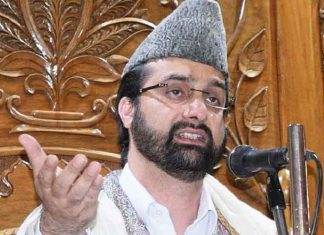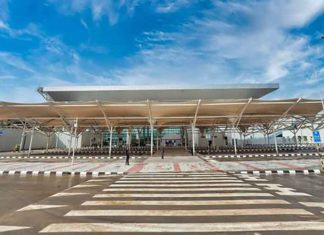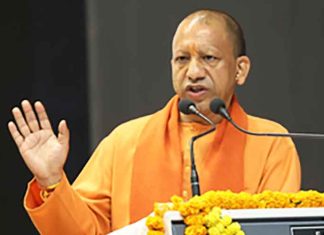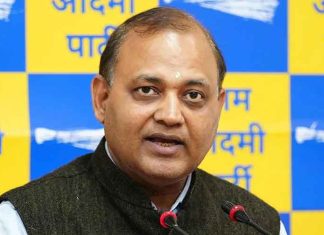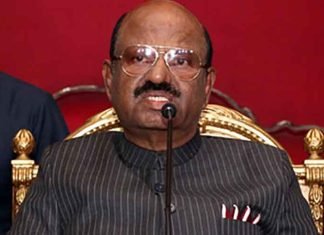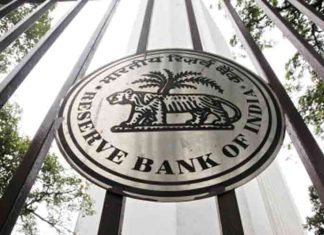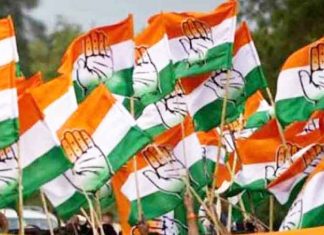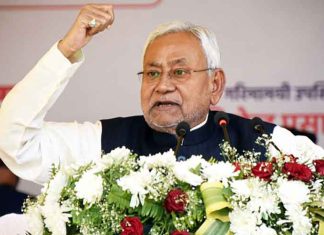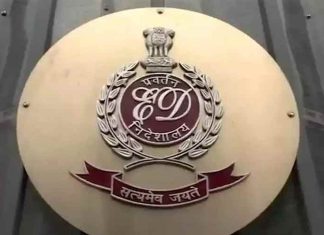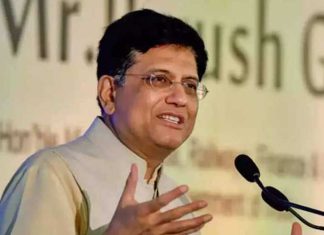Ludhiana, April 12, 2025 (Yes Punjab News)
Combating deep-rooted water crisis in Punjab collectively, the third Punjab Sarkar – Kisan Milni was held at Punjab Agricultural University (PAU) today to impress upon the state farmers to stop the cultivation of water-gulping paddy variety Pusa 44; and instead grow water-efficient ‘PR’ varieties to save Punjab from turning into desert.
Since Pusa 44 has exacerbated the water scarcity in the state due to excessive groundwater extraction for higher rice productivity, the participating Chief Agricultural Officers and the state farmers were repeatedly advised to make never-stopping coordinated efforts to deviate fellow Punjab farmers away from the cultivation of water-guzzling paddy varieties to save water resources in the state.
The Chief Minister of Punjab Sardar Bhagwant Singh Mann observed, “Pleasant conversation with every seed, leaf and branch happens through science.” “Punjab has industrious farmers, all four seasons, and good environment, then why farming community should lag behind? It should be rather ahead of everyone in the era of artificial intelligence (AI),” he said to the visiting farmers.
Lauding state farmers’ massive contribution to 125 lakh metric tonne of wheat production, the Punjab CM voiced serious concern over 117 blocks falling in danger zone, out of 153 blocks, due to water-intensive paddy cultivation in Punjab.
“About 4,000 litres of water is required to produce 1 kg of rice,” he said, adding that the paddy acreage has seen a jump from 20 lakh hectares to 32 lakh hectares during the last 25 years.
Furthermore, Sardar Mann revealed that Pusa 44 taking 153 days to mature required 64 lakh litres of water for cultivation on 1 acre of area, thus, adding up to 10 per cent of more paddy straw and leading to power charges of 7,500 per acre (although free yet expenses borne by State government).
Disclosing that Punjab has been divided into three zones in view of serious water depleting issues, Sardar Mann advocated paddy sowing at Faridkot, Bathinda, Sri Muktsar Sahib and Fazilka districts (Zone 1) on June 1 with 8 hours of uninterrupted power supply, ultimately leading to no moisture issues and swift lifting of the crop by the Centre.
The Zone 2 covering districts Guradspur, Pathankot, Amritsar, Tarn Tarn, Roopnagar, SAS Nagar, Mohali, Fatehgarh Sahib, and Hoshiarpur can start paddy sowing on June 5, while Zone 3 comprising districts Ludhiana, Malerkotla, Mansa, Moga, Patiala, Sangrur, Barnala, Kapurthala, Jalandhar, and Nawashaher will begin paddy sowing on June 9, he divulged.
Elaborating, the Punjab CM suggested sowing of early maturing, high-yielding and water saving PAU developed paddy varieties, namely, PR 114, PR 121, PR 122, PR 126, PR 127, PR 128, PR 129, PR 130 and PR 131 and PR 132 for conserving precious natural resources.
Reaffirming commitment to farmers’ welfare through assured marketing, Sardar Mann also urged them to grow rice and basmati as per PAU recommendations as well as say no to spring maize cultivation, another water-guzzling crop. Later, the Punjab CM hailed the increase in water level during the last year due to cultivation of ‘PR’ varieties.
Sardar Gurmeet Singh Khuddian, Minister for Agriculture and Farmers’ Welfare, Punjab, hailed farmers’ monumental contribution to the Central pool for the last 75 years. In wake of emerging agri-challenges, he suggested paddy cultivation following recommendations of the University for enhanced productivity as well as profitability.
Lamenting shrink in cotton acreage, the agriculture minister advised the cotton growers to increase the acre under this crop keeping in view its marketing potential.
In his welcome remarks, Dr Satbir Singh Gosal, Vice-Chancellor, PAU, said that PAU and Punjab government were making never-ending efforts to conserve water, improve soil health and augment farm income.
Expressing his sincere gratitude to the Punjab CM for assuring constant support, Dr Gosal disclosed the expenditure of 80 crore being spent on the upgradation of infrastructure at PAU with focus on road carpeting, hostel renovations, beautification of campus, etc. Additionally, he divulged the use of digital media, and the establishment of the School of AI and Accel Breeding at PAU for speeding-up the research programmes.
Dr AS Dhatt, Director of Research, proposed a vote of thanks. Dr TS Riar, Additional Director Communication, coordinated the programme.
Later, the Punjab CM and the Agriculture Minister lauded PAU publications, especially, Package of Practices for Kharif Crops and coffee table book “Skilling Young and Old Punjab: PAU’s Colossal Feat.” The dignitaries were also felicitated on the occasion.
Sardar Hardeep Singh Mundian, Minister for Revenue, Rehabilitation and Disaster Management, Punjab; Mr Sanjeev Arora, MP, Rajya Sabha; Mr Basant Garg, Administrative Secretary, Agriculture and Farmers’ Welfare, Punjab; Mr Himanshu Jain, Deputy Commissioner, Ludhiana; Dr JPS Gill, Vice-Chancellor, GADVASU; and Dr Jaswant Singh, Director of Agriculture, Punjab, were also present on the occasion.





